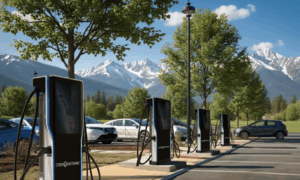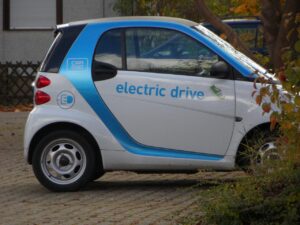
Home / EV Charging News / Consumer Preferences for Electric Vehicles: What Features and Qualities Do Buyers Value Most
Electric vehicles (EVs) are gaining popularity as an alternative to traditional gasoline-powered cars. While EVs offer many advantages, such as lower emissions and reduced reliance on fossil fuels, consumers have a wide range of preferences when it comes to choosing an EV. Understanding what features and qualities EV buyers value most can help inform the development of new electric car models and charging infrastructure. In this article, we will explore the top factors that influence EV buyers’ decisions and what they look for when purchasing an EV.
Range is one of the most important factors for EV buyers, and it refers to the distance an electric car can travel on a single charge. Many buyers prefer vehicles that can go farther without needing to recharge, especially for long-distance travel. A longer range also gives buyers peace of mind that they won’t run out of power during their daily commute or while on a road trip.
EV buyers also consider the availability and convenience of charging infrastructure. They want to know that they can easily find charging stations, especially when traveling long distances. Many buyers prefer fast-charging options that can recharge their cars quickly, such as DC fast charging.
While EVs are often associated with being eco-friendly and efficient, buyers also want vehicles that offer good performance and handling. They want cars that can accelerate quickly, handle well in different driving conditions, and provide a comfortable ride.
Cost is always a significant factor for any vehicle purchase, and it’s no different for EVs. While the price of electric cars has been dropping in recent years, they are still generally more expensive than gasoline-powered cars. Buyers often weigh the upfront cost of the vehicle against the long-term savings they can achieve from lower fuel and maintenance costs.
Safety is another important factor that EV buyers consider. They want cars that are equipped with the latest safety features, such as blind-spot monitoring, lane-departure warnings, and automatic emergency braking. Many EVs also have a lower center of gravity, making them more stable and less likely to roll over in an accident.
One of the primary reasons why people choose to purchase an EV is to reduce their environmental impact. EVs produce zero emissions, which means they contribute less to air pollution and greenhouse gas emissions than gasoline-powered cars. Many buyers consider the environmental benefits of owning an EV when making their purchasing decisions.
The brand reputation of an automaker can also influence the purchasing decisions of EV buyers. Many consumers are loyal to certain brands and trust them to produce high-quality, reliable vehicles. In addition, some automakers are known for their commitment to sustainability and environmental responsibility, which can be a significant factor for buyers who prioritize these values.
While not as critical as other factors such as range and cost, the design and style of an EV can also play a role in the purchasing decision. Many buyers want a vehicle that looks stylish and modern, with sleek lines and innovative features. In addition, some buyers may prefer a particular body style, such as a sedan, SUV, or hatchback.
EV buyers also consider the lifespan and durability of the battery when making a purchasing decision. Many buyers want a battery that can last for several years without needing to be replaced, and they want to know that the battery will maintain its performance over time. In addition, some buyers are concerned about the environmental impact of disposing of a used battery.
Finally, government incentives and rebates can also influence the purchasing decision of EV buyers. Many governments offer tax credits, rebates, or other incentives to encourage consumers to purchase EVs. These incentives can significantly reduce the upfront cost of an EV, making it a more attractive option for buyers.
In summary, understanding what features and qualities EV buyers value most can help automakers and charging infrastructure providers develop products that meet the needs and preferences of a wide range of consumers. By prioritizing factors such as range, charging infrastructure, performance and handling, cost, safety, environmental impact, brand reputation, design and style, battery life and durability, and government incentives and rebates, companies can develop electric cars that are both attractive and affordable to consumers. As the demand for EVs continues to grow, we can expect to see even more innovative features and improvements in the technology that make EVs even more appealing to buyers.



